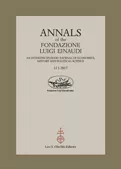This is a lecture about the evolution of liberalism over the centuries. It tries to penetrate the many complexities and roots that constitute liberalism as ideology. The basic goal is to evaluate contemporary arguments about the particular ways of talking about liberalism, but the approach is necessarily historical. Liberalism marks a decisive break with feudal conceptions of law and society, but it assimilates the two main legalistic traditions of the antiquity: constitutionalism and republicanism. In the modern age these traditions have been adapted to fit within the evolving liberal (contractarian or utilitarian) Weltanschauung. Characteristic for the last decades has been the polarization between a liberalism of interests (and market) and a liberalism of rights (and citizenship) and the success of a view which oppose property rights to social rights (libertarianism).



